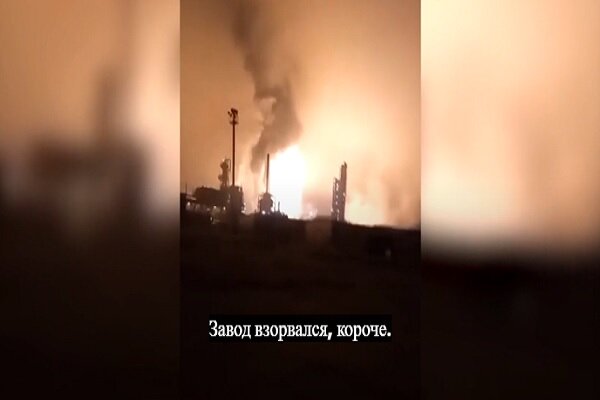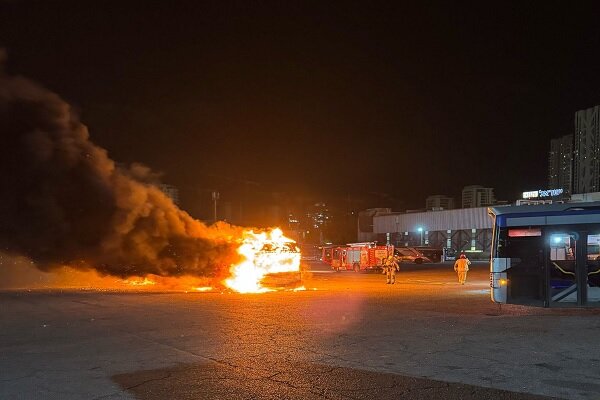Ukrainian Drones Strike Southern Russia’s Oil Pipeline: A Bold Move in Ongoing Conflict
The recent escalation in the conflict between Ukraine and Russia has seen significant developments, with Ukrainian drones targeting critical infrastructure. In a notable incident, Ukrainian drones hit a major oil pipeline in southern Russia, raising concerns over the impact on energy supplies from Kazakhstan. This attack has drawn attention from international media and analysts alike, highlighting the ongoing geopolitical tensions in the region.
According to a statement released by the Caspian Pipeline Consortium on Telegram, the overnight drone strike targeted the Kropotkinskaya pumping station. As a result, oil supplies from Kazakhstan are now flowing at “reduced” rates. This situation not only affects the immediate operations of the pipeline but also has broader implications for energy markets and regional stability.
Here are key details about the incident:
- Location of the Attack: Kropotkinskaya pumping station in southern Russia.
- Impact on Oil Supply: Oil shipments from Kazakhstan have been affected, leading to reduced flow rates.
- Operator’s Statement: The Caspian Pipeline Consortium confirmed the drone strike and its effects on operations.
- Geopolitical Context: This attack is part of a larger pattern of escalating military actions between Ukraine and Russia.
The Kropotkinskaya pumping station plays a crucial role in transporting oil from Kazakhstan to global markets. With the recent drone strikes, energy analysts are closely monitoring the situation as it unfolds. The reduced flow rates could influence oil prices and availability, especially in European markets that heavily rely on this oil supply.
In recent months, the conflict has intensified, with both sides engaging in various military strategies. Ukraine’s use of drones represents a shift in tactics, aiming to disrupt Russian supply lines and infrastructure. This drone strike is not an isolated incident; it underscores a broader strategy by Ukraine to exert pressure on Russia’s energy capabilities.
Furthermore, the implications of this drone attack extend beyond immediate supply disruptions. Analysts note that such actions may provoke stronger responses from Russia, potentially leading to an escalation of military engagement in the region. The ongoing conflict has already resulted in significant geopolitical shifts, and events like this only add to the complexity of the situation.
As the situation develops, stakeholders in the energy sector are advised to stay informed about potential changes in oil supply dynamics. The Caspian Pipeline Consortium has indicated that they are assessing the situation and will provide updates as more information becomes available.
In summary, the drone strike on the Kropotkinskaya pumping station in southern Russia is a significant event in the ongoing conflict between Ukraine and Russia. It serves as a reminder of the fragility of energy supplies in the region and the complex geopolitical landscape that continues to evolve. As tensions remain high, the international community will be watching closely to see how this situation unfolds and what it means for future energy security.
For businesses and consumers alike, understanding the potential impacts of such attacks on oil supplies is vital. Here are some considerations:
- Energy Prices: Disruptions in supply can lead to fluctuations in global oil prices.
- Market Stability: Increased volatility in oil markets could affect economic stability in various regions.
- Supply Chain Impacts: Companies reliant on oil supplies may need to reassess their logistics and sourcing strategies.
- Long-term Effects: Prolonged disruptions could lead to shifts in energy policy and investment in alternative energy sources.
As the conflict continues, it is crucial for all stakeholders to remain vigilant and prepared for possible disruptions in energy supplies. Understanding the dynamics at play will be essential for navigating the challenges ahead.






